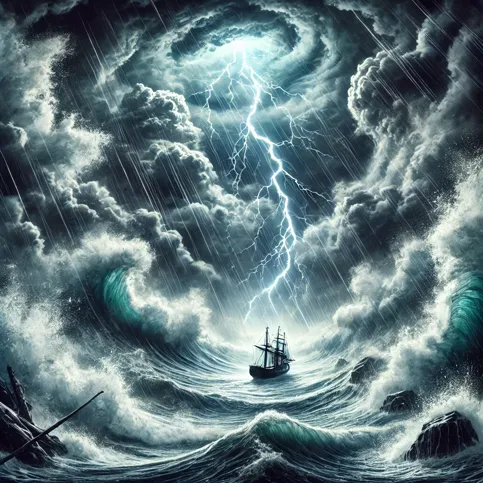What’s the meaning of the phrase ‘A perfect storm’?
A situation, or set of circumstances, where there’s an extraordinary convergence of multiple factors, such as tensions building up, to create several simultaneous and dramatic events. (Usually in the negative sense.)
What’s the origin of the phrase ‘A perfect storm’?
The first known use of the phrase dates back to 1850, when the Reverend Lloyd Withington describes a meteorological event, and the subsequent rainfall as follows: ‘A perfect storm of thunder and lightning all over England (except London) doing fearful and fatal damage’.
There was also a more recent storm in 1991 given the moniker ‘Perfect storm’ by the author and journalist Sebastian Junger, in his book The Perfect Storm, published in 1997. The book describes how the convergence of weather conditions beforehand were ‘perfect’ for the formation of such a cataclysmic storm. This was when the phrase truly came into popular use.
Today, the term is not used to refer to meteorological events alone. For instance, the outbreak of World War I could be seen as a perfect storm of alliances, political assassinations, and nationalism.
Alternative words for this phrase include: catastrophe, disaster, trainwreck, fiasco, omnishambles. However, these alternative words don’t do as much to depict the convergence of multiple factors to produce such a powerful and dramatic result.
What are some notable uses of the phrase ‘A perfect storm’?
In recent years, the phrase has also been used to depict technological failures, the 2008 financial crisis, and the climate change crisis.
In the year 2000, a film was released called ‘The Perfect Storm’ based on Junger’s book (mentioned earlier), starring George Clooney and Mark Wahlberg.

